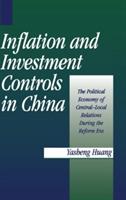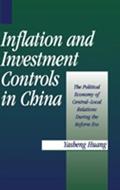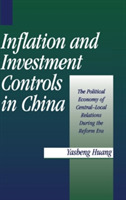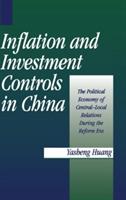Inflation and Investment Controls in China: The Political Economy of Central-Local Relations during the Reform Era
How has the Chinese central government been able to avoid the crippling hyperinflation that has bedeviled so many developing and centrally planned economies? China's unique, de facto federalism, Huang argues - a combination of economic and fiscal decentralization and strong political centralization - has spurred economic growth and allowed political institutions to impose restraints on inflation from the top down. Focusing on central-local relations and the controlling role of political institutions, Yasheng Huang explains why local Chinese officials comply, even against their own economic interests, with the investment-reduction and inflation-control policies of the central government. Drawing upon institutional economics, he hypothesizes that the central government's powerful role in appointing and firing bureaucrats at the local level helps to reconcile some of the central-local economic policy differences. Huang uses systematic data analysis to test this proposition. This book also offers detailed descriptions of the roles of local governments in economic and investment management.
-
Autore:
-
Editore:
-
Anno:1996
-
Rilegatura:Hardback
-
Pagine:394 p.
Le schede prodotto sono aggiornate in conformità al Regolamento UE 988/2023. Laddove ci fossero taluni dati non disponibili per ragioni indipendenti da Feltrinelli, vi informiamo che stiamo compiendo ogni ragionevole sforzo per inserirli. Vi invitiamo a controllare periodicamente il sito www.lafeltrinelli.it per eventuali novità e aggiornamenti.
Per le vendite di prodotti da terze parti, ciascun venditore si assume la piena e diretta responsabilità per la commercializzazione del prodotto e per la sua conformità al Regolamento UE 988/2023, nonché alle normative nazionali ed europee vigenti.
Per informazioni sulla sicurezza dei prodotti, contattare productsafety@feltrinelli.it



